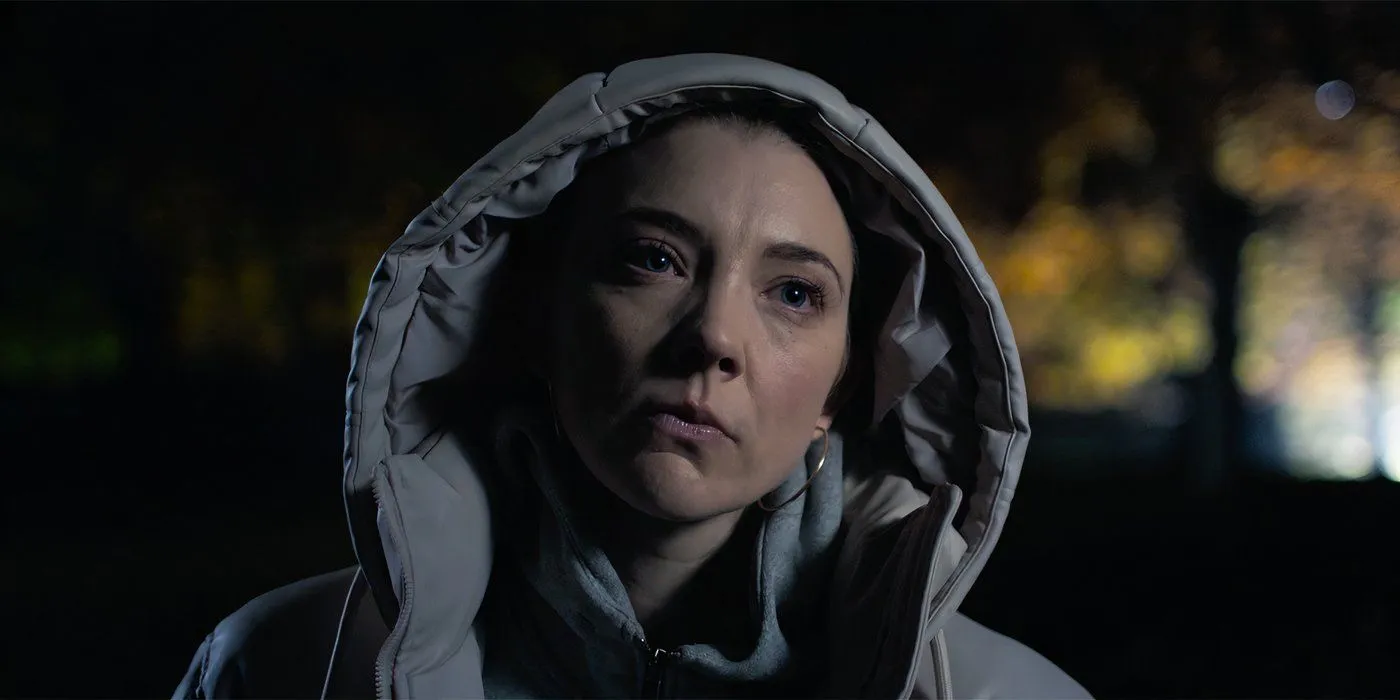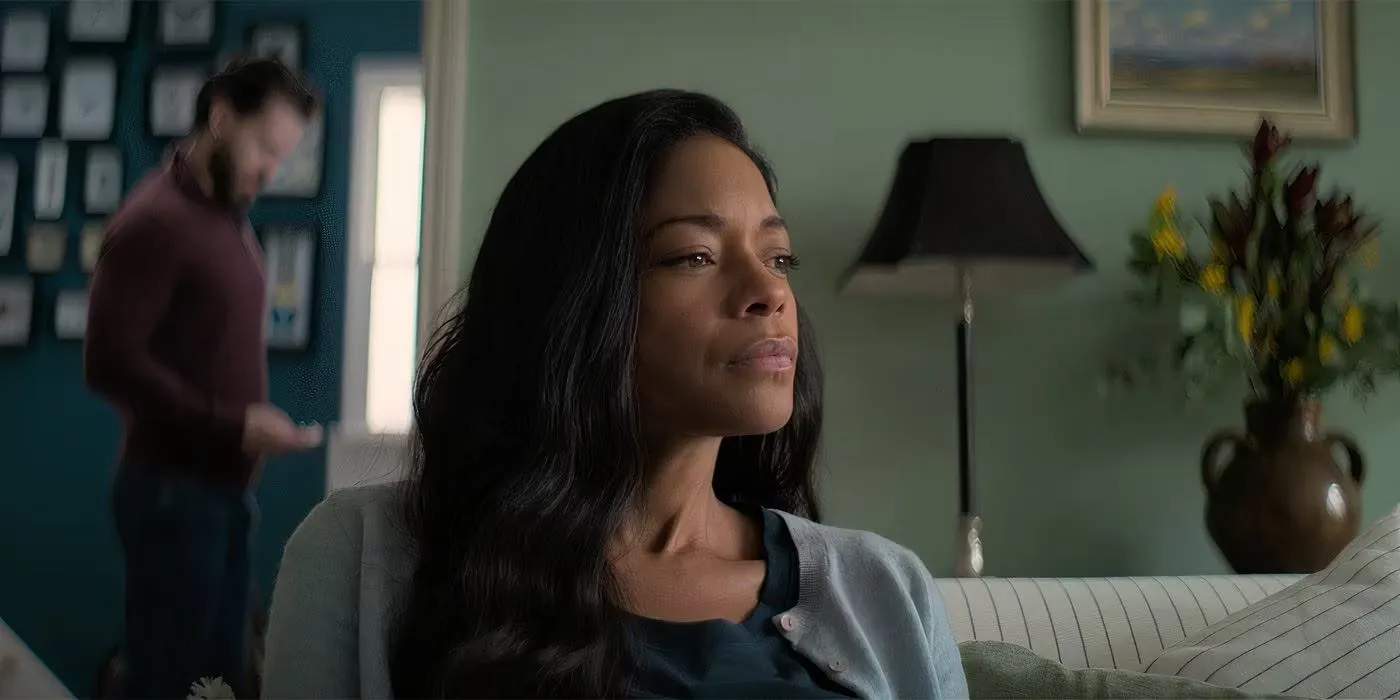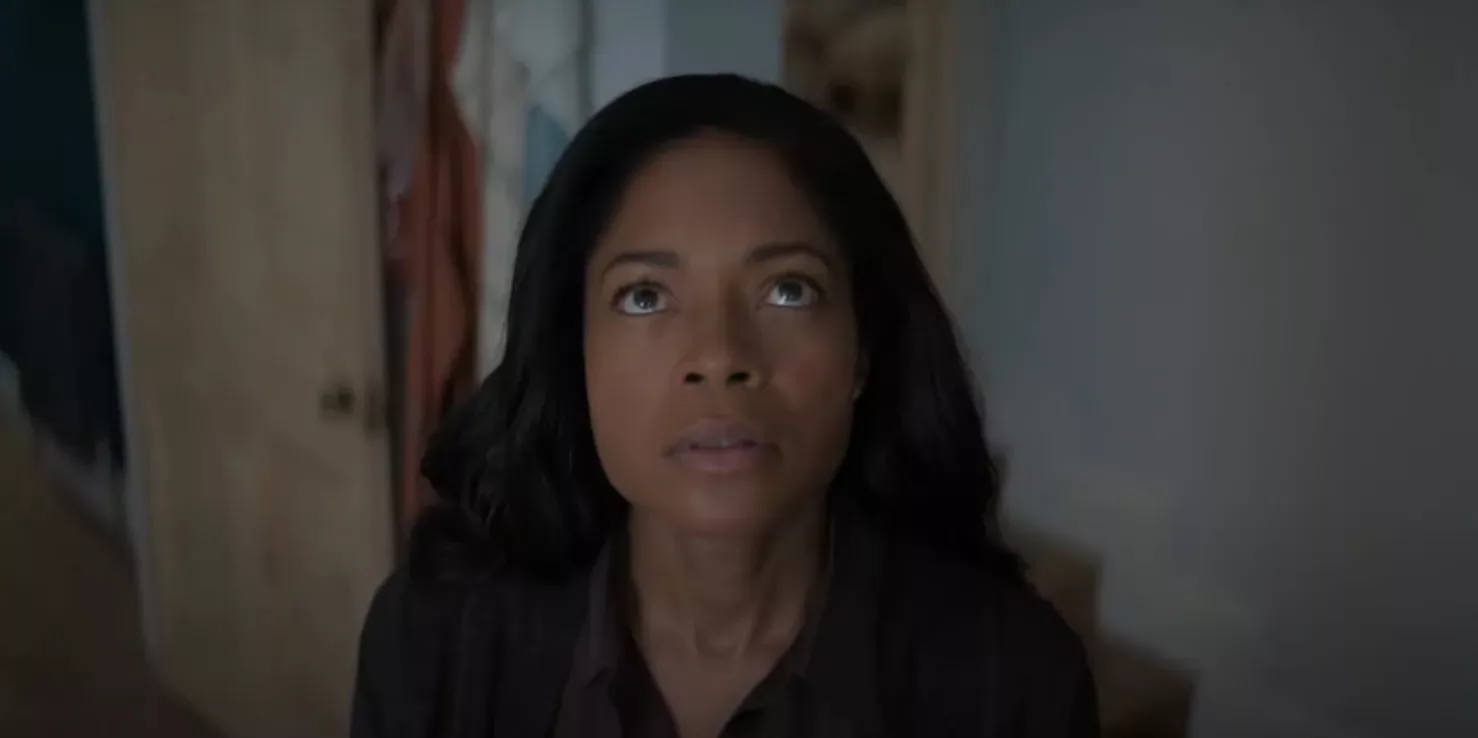Naomie Harris and Natalie Dormer lead director Guillem Morales’s psychological thriller The Wasp, adapted from Morgan Lloyd Malcolm’s acclaimed stage play. Morales crafts an unnerving tale of two former friends whose chance meeting turns ominous.
Heather, a housewife feeling trapped in her marriage, seeks out Carla after years apart. Once classmates, their lives have diverged greatly. Heather now lives comfortably but struggles with isolation and infertility. Meanwhile, single mother Carla scrapes by on low wages, with money troubles adding to daily stresses.
When these women meet again, it’s not for a pleasant catch-up. Heather has a disturbing proposal for Carla – she wants her to commit murder. Kill Heather’s husband in exchange for a handsome payoff. Shocked but desperate, Carla hears Heather out. Their teacup chat soon reveals hidden depths to both characters, and dark secrets from their shared past.
As tensions rise, memories emerge of childhood events that shaped these friends-turned-foes. Through intricate flashbacks, Morales gradually unravels mysteries surrounding their relationship. Just what made Heather reach out for such an unthinkable favor? And how far will each woman go to guard their secrets and save their own skins? With twists around every corner, The Wasp grips like the namesake insect sinking in its sting.
The twisted reconnection
The film introduces Heather, an unhappily married housewife living a comfortable life. Unable to conceive, she feels trapped in her situation. Meanwhile, Carla scrapes by on low wages as a cashier, with financial woes adding to daily stresses as a single mother.
Despite following diverging paths, the women were once classmates. Years have passed since Heather contacted Carla, not for a nice catch-up. At their meeting, Heather unveils a disturbing plan—she wants Carla to murder her husband, offering money as an incentive. Though shocked, Carla’s desperate circumstances leave her willing to listen.
As tensions rise, the past resurfaces. Flashbacks depict the differing experiences that shaped each character. Heather, a dark moment with Carla hinted at future turmoil. Meanwhile, Carla endured her own hardships.
Through these glimpses, their complex relationship grows clearer. But more recent events remain shrouded in mystery. Just what precipitated Heather’s deadly scheme? And how far will each woman go to protect herself as the situation spins out of control?
Intricate flashbacks slowly unravel the mysteries. But more questions emerge as the women descend into darkness. Morality grows blurred as both fight to escape their personal prisons, regardless of the collateral damage. Their tangled histories have led to an explosive reconnection with uncertain consequences for everyone involved.
The Translation to Screen
Guillem Morales faced a difficult task in bringing Morgan Lloyd Malcolm’s play to the big screen. Stories born on stage don’t always carry over seamlessly. However, Morales’ deft direction makes The Wasp soar.
Intimate moments captivate through his close-ups and framing, putting viewers in the characters’ shoes. Tight shots in Heather’s home enhance feelings of entrapment. You almost feel the walls closing in alongside the characters.
Yet Morales ensures escape through ingenious flashbacks. Revealing the past thrillingly, they break monotony and propel intensity. Childhood scenes disturb through unsettled camerawork and an eerie atmosphere. The unease leaves a lasting impression.
Cleverly, flashbacks emerge piece by piece, like puzzles coming together. Each glimpse offers perspective while raising mysteries. By the film’s end, the complete picture shocks and saddens and stimulates endless thought. It’s a masterful unraveling that keeps viewers rapt.
Morales understand that staging transfers restriction to opportunity. Working within a single setting, he locates liberation through visual storytelling. Expression flourishes where dialogue falls short. The technique brings an unforeseen vigor fitting this dynamic thriller.
While adaptation posed obstacles, Morales’ vision conquered all. His journey from page to projection transports The Wasp to new heights. Theater gains fresh life on screen through his signature style and passion for the craft.
Ownership of Craft
Naomie Harris and Natalie Dormer sink their teeth into The Wasp.Delving deep, they craft performances that own the screen.
Harris unveils Heather’s splintered psyche with mesmerizing command. Weakness and ferocity intertwine—Harris seamlessly shifts between. Her Heather knows darkness but also understands power in manipulation. Subtle gestures hint at complexity and ambiguities that leave minds spinning. Through Harris, he lives and breathes as a tragic figure driven to the edge by emotion’s force.
Dormer manifests Carla as equally multifaceted. Tough façade shields old wounds, yet Dormer locates humanity’s gentle core. her Carla wounded but unbroken, fighting for family at any cost. Dormer imbues actions with fierce sentiment—protecting her own feels both courageous and unsettling. Two sides of every coin shine through, proving villains don’t exist without cause.
Together, Harris and Dormer ignite a blaze. Their gazes crackle and exchange razor-edged. An unspoken history fuels each stare-down, twists of turmoil that grip the soul. As classmates turned adversaries, their rapport spiraled to shocking ends. But this relationship’s root lies in sharing, in bonds broken by the cruelties of time.
In Harris and Dormer’s hands, Heather and Carla live and breathe as real women—reflections of our flaws, demonstrations of survival’s need. Theirs is no simple story of good versus evil, but one where violence stems from pain and none escape trauma’s reach. Their mastery erects complex, emotionally raw characters that haunt long after the final scene. Two actresses at the top of their game, Harris and Dormer, ignite The Wasp’s smoldering, unforgettable core.
Shadows of the Past
The Wasp delves into depths few dare reach. Morales and Malcolm peel back layers, exposing the complexities that truth alone holds. Through characters simmering in desperation, past pains cast long shadows across present lives.
Heather, trapped by longing and her husband’s misuse of power, clings to control’s last edges. Carla, ground beneath need’s heel, embraces darkness to provide. Both linger where trauma first took root, old wounds awakened by life’s cruelties. Resentment festers yet empathy survives—neither falls villain nor victim completely.
Their tenuous sway hints relationships rarely hold single truths. Power ebbs and flows; each grants and seizes in turn. Societal shadows too loom large, racial and class imbalances somehow unaddressed. Realities left unspoken still shape lives nonetheless.
But roots run deepest here—how trauma warps yet links its prisoners, binding even as distances grow. Anger rides pain’s coattails, yet love survives its depths, as complexity outruns expectation’s grasps. Revenge proves small solace for wounds time cannot heal.
Through frailties and fierceness alike, The Wasp finds humanity. Illuminating lingering pains and desperation’s edges, it highlights friendship severed and restored, presenting messy truths with hard-won empathy. Some stones left unturned, yet understanding grows all the same. In shadow’s embrace, light yet emerges for those willing to look.
Textured Dread
Subtle craft elevates The Wasp’s unsettling tone. Meticulous production design instills Heather’s home with pristine dread. Morales immerses viewers in her world through oblique angles and intimate close-ups, rendering even edges sharp.
Costuming differs starkly between leads. Heather dresses for PTA functions, yet stiffness belies inner fractures. Practical garb grounds Carla’s ferocity, yet whispers of her own private pains emerge. Together they craft a diptych—one woman gilded yet crumbling, the other weathered yet resilient.
Dynamic lighting throws characters into relief. Heather basks in luminescent settings that highlight splendor’s chilling vacancy. Dimmer scenes bathe Carla’s world in shadows, secrets writ between lines. Each framing speaks what words leave unsaid.
Together, myriad textures weave The Wasp’s unsettling spell. Submerged tensions rise through ornate flourishes and lived-in flaws alike. Style serves subtext as craft augments the churning depths beneath. Viewers plunge into an eddying psychological undercurrent just beyond sight, yet felt in bone-deep recognition of the hidden struggles we all bear. Here mastery elevates material, gifting viewers insights to linger long after the closing credits roll.
Enthralling Until the Ending
The Wasp worked wonders until the last moments. Heather and Carla enthralled with urgent intensity, yet their resolution felt off. Morales crafted a setting that simmered, while Harris and Dormer evolved from targets to tormented beings deserving empathy.
Flashbacks unraveling childhood trauma hinted at later disruption. Their reunion proved electric, fraught secrets bubbling beneath broken bonhomie. Carla’s plight emerged bleaker against Heather’s affluence, yet both bore invisible scars. As motives grew complex, pathos emerged for lives diminished by anger’s grip.
Tension mounted dexterously, climax approaching like a held breath. But the denouement disappointed after such nuance. Where complexity reigned, simplicity surfaced. Characters warranted transformations, not reversions. Their gripping exploration deserved a matching conclusion.
Not all fell perfectly into place, yet The Wasp proved a thriller that lingers. Its questions stay with you. Heather and Carla stay with you. For bringing complex issues movingly to life through deft direction and unforgettable leads, Morales and company provide a remarkable cinematic experience. Even an imperfect ending cannot diminish their success gripping audiences with a compelling, unflinching glimpse into tangled psyches and the shadows of our past.
The Review
The Wasp
The Wasp proves a gripping psychological thriller carried by nuanced performances that burrow beneath the skin. Though its conclusion offers less than promised, Morales' unflinching exploration of trauma's toll retains its power. Harris and Dormer give unforgettable portrayals in a film sure to linger long after closing credits.
PROS
- Nuanced performances by Naomie Harris and Natalie Dormer that drive the narrative
- Intricate examination of childhood trauma and its lasting impacts
- Palpable tension crafted through atmosphere and pacing
- Engaging character study that elicits empathy
CONS
- Predictable and anticlimactic ending that doesn't satisfy
- Some dialogue feels overly expository.
- Certain plot points could have explored themes of race and class further.





















































Discussion about this post